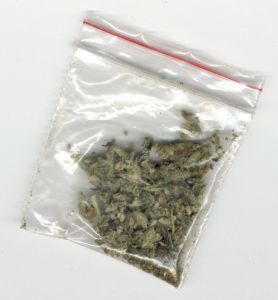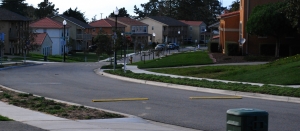Case Dropped Against Oldest-Running Southland Medical Marijuana Dispensary
A case was recently dropped against the longest-serving medical marijuana dispensary in Los Angeles, and the owner publicly vowed to continue to cultivate marijuana in his own backyard for seriously ill HIV/AIDS patents.
The Los Angeles County District Attorney’s Office dropped a criminal case against the owner just days before it was due to go to trial, according to the Los Angeles Wave.

Paul Scott, the founder and executive director of the Inglewood Wellness Center and the Los Angeles Wellness Center was arrested and charged last June for the cultivation of marijuana and the possession of marijuana for sale. He no longer faces any of these charges.
Our Los Angeles medical marijuana lawyers understand that in many cases, law enforcement can’t back up their zealous raids in court. They can, however, cause a defendant years of headaches, delays and confusion. Oftentimes these cases may leave a defendant eligible to pursue a civil recovery or other means of redress in return for inconvenience.
“There was a ‘ghetto bird’ over head, I’m in handcuffs; they go through to the back garden and pull up the plants and put them in big bags,” Scott recalled. “I was trying to tell them who I am … that I am a founder of a medical marijuana collective and that I have all the paperwork. They just sit me on the sofa asking me questions about money and bank accounts and search the house from top to bottom. They also rip the lights out from the indoor green house.”
Scott compared his arrest at his South Los Angeles home to that of a Hollywood movie scene.
The founder reportedly spent $30,000 on the services of a Santa Monica-based attorney. The District Attorney eventually offered a deal to dismiss the case in exchange for a 90-day jail sentence.
“Jury selection was becoming imminent … there were some pre-trial procedures, but had we not succeeded in the pre-trial phase, we would have been picking a jury,” Scott’s attorney said. “My first thought when Paul approached me to take the case was … is there a legitimate medical marijuana collective? And as we did our investigation it became clear that Paul’s collective, the Inglewood Wellness Center, is probably the most legitimate collective I’ve ever seen.”
The defendant received plenty of support from members of the community who Scott had helped. He didn’t only help them with medical marijuana, but he also created Thanksgiving and Christmas baskets, and backpacks for school children in the area. To his supporters, he wasn’t just a pot dealer, but a true member of the community.
“Their dilemma is that the rules are not clearly established in distinguishing between legal and illegal distribution of marijuana. If it is done for medical marijuana purposes and on a collective basis, it’s not illegal, but the lines are not clear,” Scott’s attorney said. “It’s difficult for lawyers advising collectives; it’s difficult for the courts to enforce the rules because they are so vague. It’s hard for police to know when someone is acting illegal or not. But the facts in Paul’s case came down very clearly on the legal side of the equation.”
Scott believes that had the officers known then what they know now, he may not have been arrested. Officers often fail to use logic during these raids and focus on the bust.
Scott now plans to help those who may not be able to afford medical marijuana. He would like to help them grow their own plants in his backyard. All he asks is for their help watering and caring for the medicinal plants.
Continue reading
 Cannabis Law Group's Medical Marijuana Legal Blog
Cannabis Law Group's Medical Marijuana Legal Blog










